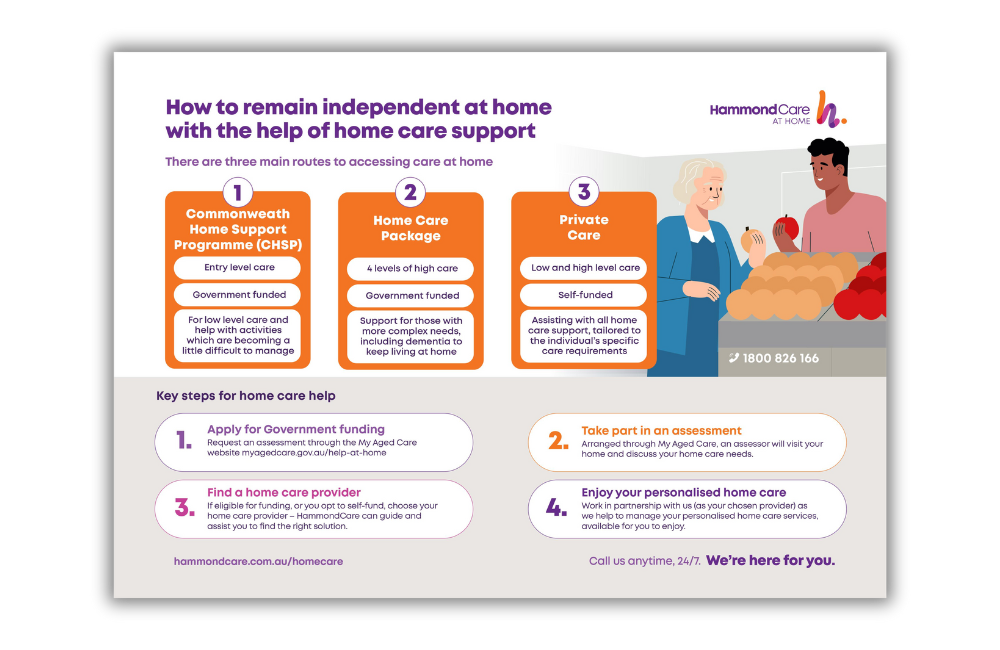All Regarding Home Treatment Services for Individuals With Disabilities: NDIS Registered Assistance
Home treatment solutions under the NDIS play a pivotal function in sustaining people with handicaps. These services are developed to improve everyday living with customized assistance, ranging from individual like mobility support. Comprehending just how to browse these options can be complicated. This introduction discovers the various aspects of NDIS home care, from offered services to the choice of service providers, highlighting necessary factors to consider for those looking for assistance. The trip towards encouraged treatment begins right here.
Comprehending the NDIS and Its Function
The National Special Needs Insurance Policy System (NDIS) works as a transformative structure designed to provide support and solutions for people with disabilities. Developed to enhance the high quality of life and guarantee equitable accessibility to essential sources, the NDIS encourages individuals by supplying individualized plans tailored to their one-of-a-kind needs. It intends to foster self-reliance, allowing individuals to pursue their personal goals and aspirations.Through an organized strategy, the NDIS allots financing for different supports, consisting of education and learning, employment support, and community participation. This comprehensive system not only concentrates on immediate treatment however likewise emphasizes lasting developmental outcomes. By advertising option and control, the NDIS encourages participants to select their recommended solution suppliers, guaranteeing that treatment straightens with their values and choices. Inevitably, the NDIS represents a significant dedication to improving the lives of individuals with handicaps, cultivating inclusivity, and constructing a much more supportive culture.
Sorts Of Home Treatment Services Available
Different types of home treatment solutions deal with people with specials needs, primarily concentrating on individual care aid and break treatment options. Personal treatment assistance gives vital assistance with day-to-day activities, while reprieve care provides short-lived relief for key caretakers. Comprehending these solutions is important for making certain the well-being of both people with disabilities and their households.
Personal Treatment Aid
While navigating every day life can present difficulties for people with disabilities, personal care help offers necessary assistance tailored to their special requirements. This sort of home treatment solution encompasses a variety of tasks designed to promote self-reliance and improve lifestyle. Individual care assistants assist with everyday tasks such as bathing, dressing, grooming, and toileting, making sure people keep individual health and convenience. They might also aid with meal preparation, drug monitoring, and movement support. By supplying individualized treatment, these specialists empower individuals to engage more fully in their everyday regimens and social activities. Generally, personal care assistance plays a considerable function in fostering dignity and autonomy for those with specials needs, enabling them to prosper in their home atmosphere.

Respite Treatment Options
Respite treatment acts as an important source for households and caregivers of people with impairments, providing short-lived relief from the needs of everyday caregiving. This type of solution can take various kinds, including at home break treatment, where qualified specialists check out the home to assist with treatment jobs. Additionally, family members may select facility-based break treatment, where individuals get treatment in a specific setting, allowing caregivers to relax. Additionally, some companies use emergency situation respite solutions for unpredicted situations. These alternatives not only help relieve caregiver anxiety yet also promote the wellness of people with disabilities by providing them brand-new experiences and social communication. Overall, break care plays an essential role in supporting both caregivers and those they take care of.

Exactly How to Gain Access To NDIS Home Care Services
Accessing NDIS home care services involves recognizing the qualification standards stated by the National Handicap Insurance Policy Plan. People must browse an organized application process to secure the necessary assistance customized to their requirements. This section will make clear both the qualification demands and the actions involved in looking for solutions.
Qualification Criteria Described
To get approved for NDIS home care solutions, individuals must meet certain eligibility standards that examine their scenarios and needs. First, candidates should be matured between 7 and 65 years and have a irreversible and significant special needs that affects their capability to execute everyday tasks. Additionally, they need to be an Australian person, a permanent citizen, or hold a Protected Unique Group Visa. The NDIS calls for proof of the impairment, commonly through medical evaluations or records. People should demonstrate that they need support to take part in financial and social life. These standards assure that solutions are routed in the direction of those that truly require aid, advertising independence and improved lifestyle for individuals with disabilities.
Application Process Steps
Can I Select My Own Assistance Workers Via NDIS?
The private inquired whether they can choose their very own support employees under the NDIS framework. Typically, individuals have the versatility to pick support employees, promoting personalized treatment that aligns with their certain needs and choices.
What Happens if My Demands Change After Obtaining Support?
They should interact these changes to their service copyright if an individual's requirements modification after receiving support. Changes can be made to the treatment plan, making certain that the support stays pertinent and effective for their circumstances.

Exist Restricts on The Number Of Hours of Care I Can Obtain?
The specific asked about potential limits on the number of treatment hours obtained. Usually, such limits might exist based upon details plans or moneying plans, highlighting the relevance of assessing contracts and guidelines frequently.
Can I Utilize NDIS Funding for Home Modifications?
The question of making use of financing for home adjustments arises frequently. Generally, people might use NDIS funding for necessary modifications to their homes, making certain access and safety and security, section upon meeting details qualification requirements and standards.
How Do I Handle Issues Regarding My Home Care Providers?
To attend to complaints concerning home care solutions, individuals should initially document their problems. Then, they can communicate straight with their service supplier, seeking resolution, or intensify the concern to relevant oversight bodies if necessary. Home treatment services under the NDIS play a crucial role in sustaining individuals with handicaps. Various kinds of home care solutions cater to individuals with handicaps, mostly concentrating on personal treatment assistance and break treatment options. support at home provider. Individual care aid offers crucial support with everyday tasks, while respite care uses temporary relief for key caretakers. Families may choose for facility-based respite care, where individuals get treatment in a customized environment, enabling caregivers to take a break. Just how can family members effectively handle the monetary elements of home treatment solutions for people with disabilities?